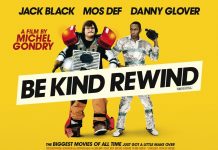 Publishing Perspectives has an interesting look at Japanese jisui company BOOKSCAN and its American subsidiary 1DollarScan, via an interview with CEO Hiroshi Nakano. Jisui companies are the do-it-yourself e-book makers who will, for a fee, take customers’ paper books and scan them into e-books for them. This allows the customers to get rid of the bulky books and replace them with compact electrons—extremely important in space-cramped Japan.
Publishing Perspectives has an interesting look at Japanese jisui company BOOKSCAN and its American subsidiary 1DollarScan, via an interview with CEO Hiroshi Nakano. Jisui companies are the do-it-yourself e-book makers who will, for a fee, take customers’ paper books and scan them into e-books for them. This allows the customers to get rid of the bulky books and replace them with compact electrons—extremely important in space-cramped Japan.
Both the Japanese and American companies charge rock bottom prices for scanning, and both have been highly successful—the Japanese branch more so than the American, but both have been doing pretty well. And as for the jisui lawsuit we mentioned here a time or two:
Nakano stresses that the service complies with all copyright laws; scanning services are provided under the condition of Fair Use and all customers have to agree with the Terms and Conditions to use the scanning services.
“In Japan we have no issue with publishers, though seven authors did file a lawsuit against a rival, poor quality scanning service, though they later stopped the lawsuit. On our website we make it clear that we do not want to compete with publishers. We want to work with them to expand the market. We also have a copyright management system on our website for authors and publishers. If publishers do not want us to scan their content, they can register with us. We are open and cooperative, and so far nobody has registered.”
At the height of its popularity, BOOKSCAN users faced a four month wait before the busy company could get around to scanning their books, though the wait is down to about two months now. Nakano suggests the company might expand to other parts of the world, as well as going into partnership with libraries and universities.
One interesting service the company offers in both Japan and America is that people can buy books from Amazon that don’t have e-book versions available, and have the books shipped directly to them for e-book conversion. That’s a pretty clever idea, don’t you think?
In a separate discussion post, editor Edward Nawotka ponders whether the ethics of scanning books have changed in recent years, pointing out that whether fair use really applies to this sort of transformation hasn’t ever been tested yet.
Legalities aside, is it ethical? If an author refuses to allow their publisher to put out a digital edition — perhaps for artistic or personal reasons — is it nevertheless okay for a user to convert the book to a digital format for their own personal use? There may be nothing stopping them, but is it right? And, as a result of our relatively new comfort with digital books, have the ethics changed?
This is quite the question for our digital age, isn’t it? After all, quite apart from these scanning services, it’s quite possible to build or buy your own scanning rack very inexpensively. And from scanning your own book, it’s just a short jump to downloading a cracked e-book of a book you already bought in print. After all, the end result is the same as if you scanned it without having to go to all the extra work. And the author got paid for one copy either way.

































Ethics and reasonableness aside, the legality in the US is pretty clear: this isn’t legal under current US law. The chances of mounting a “fair use” defense when copying a work in its entirety, and for commercial purposes to boot, is vanishingly small.
MP3.com got slammed down for doing the same thing with music.
I don’t entirely agree. I think this is legal. They don’t even keep the book anymore after they scan it. MP3 offered a totally different service. It’s not like MP3.com was having people send in CD’s to be converted to mp3s. Nothing personal Doug, but I don’t see it that way.
It’s not a matter of keeping the copies. Copyright law regulates the right to make a copy. 1dollarscan has no right to make a copy. Their only escape hatch is Fair Use, but there’s no way they’re going to pull that off.
Again, I must point out: I’m not speaking about what’s ethical nor what’s reasonable. I’m speaking about what’s legal in the US. Laws are often unreasonable and inconsistent, and its futile to try to guess about them. You have to look up the statutory laws and research the case law. There simply is no legal basis (in the US) for what 1dollarscan is doing.
If you believe it might pass as legal, please provide appropriate citations.
Doug, in regards to the legal basis for format/space-shifting, see http://www.supremecourt.gov/oral_arguments/argument_transcripts/04-480.pdf
In particular this bit in oral arguments before the US Supreme Court, in which Don Verrilli, representing MGM stated: “And let me clarify something I think is unclear from the amicus briefs. The record companies, my clients, have said, for some time now, and it’s been on their Website for some time now, that it’s perfectly lawful to take a CD that you’ve purchased, upload it onto your computer, put it onto your iPod. There is a very, very significant lawful commercial use for that device, going forward.”
See also the 2007 Federal Trade Commission’s response to the Sony/BMG rootkit fiasco.
Going from the US to the civilized world, making copies of commercial music for personal use (ie. ripping a CD) is explicitly legal in Australia, New Zealand. A directive of the European Union allows its member nations to include a specific exemption for personal copying, and most of them have.
Granted, none of this explictly names books, and you’re technically correct that “there is no legal basis” for it, but there’s no legal basis for claiming it’s illegal either.
The thing is that, legally, there’s a big difference between copying a work yourself and copying it commercially for someone else. That’s what sank mp3.com, originally.
How does this compare to Walmart’s disc-to-digital conversion service (http://www.dmwmedia.com/news/2012/03/13/walmart-announces-disc-to-digital-movie-conversion-service-with-video)? Sounds almost like BookScan is offering the same sort of service, but with paper books instead of DVDs.
Peter: MGM’s statement is merely recognizing that consumer copying of music is explicitly permitted by the Audio Home Recording Act of 1992 (17 USC 1008). That statute is limited to copying of music, and for personal use.
Chris: Again, that case was related to music, in which consumers are permitted by AHRA to make copies for personal use. The court found that the law didn’t permit a third party to make the copies for the consumer’s personal use. To your point, [for material other than music,] copying for yourself is a civil tort (you can be sued) as long as you don’t go nuts, whereas copying for material gain is a Federal crime. (17 USC 506)
[By “go nuts” I mean copying more than $1000 worth in any 180-day period; that’s a Federal crime even when copying for personal use.]
Frank: Wal-Mart and Vudu are providing that service with the explicit authorization of the copyright holders. From Vudu’s FAQ: “The list of movies available for Disc-to-Digital conversion is comprised of titles that have been legally cleared for digital distribution from studios participating in the UltraViolet program. We expect the number of titles available for Disc-to-Digital conversion to grow over time.”
http://www.vudu.com/disc_to_digital.html
Again… there’s nothing particularly consistent about law. Music has a special exemption allowing personal recording, in AHRA. In the 2000 Rio case, this was extended to permit simple copying (as opposed to re-recording) of existing recorded music files — the term “space-shifting” is often used for that kind of copying — although that ruling is technically limited to the domain of the Ninth Circuit. In the 1984 Betamax case, the Supreme Court indicated that it probably was legal for consumers to record free, off-the air, broadcast TV programs for the purpose of watching them at a more convenient time — usually called “time-shifting”.
In the intervening years, the Federal courts have generally been loathe to extend consumer copyright exemptions to anything else. Consumers, however, seem to imagine all sorts of extended exemptions as it suits them.